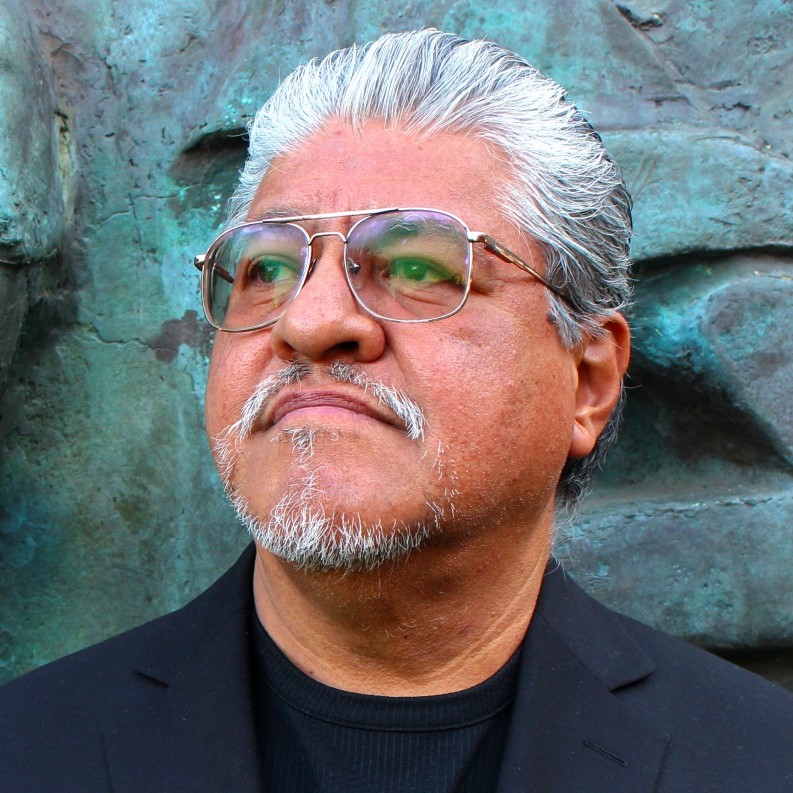Luis J. Rodriguez
Born: 1954
Poet, memoirist, and activist Luis J. Rodriguez is a self-identified Xicanx writer. Born in the border city of El Paso, Texas, Rodriguez is the son of a principal and school secretary; his parents are both natives of Ciudad Juárez, Chihuahua, Mexico, and his mother is descended from the Raramuri, an indigenous people of Chihuahua. When he was two years old, Rodriguez and his family moved from the El Paso–Ciudad Juárez border to the San Gabriel Valley of East Los Angeles, where Rodriguez would spend the remainder of his youth. As a teen in the 1960s and 70s, Rodriguez earned an extensive criminal record for drug use and gang activity. All the while, Rodriguez was an advocate and organizer within the Chicano Movement, participating in the 1968 East LA walkouts and the 1970 Chicano Moratorium. Rodriguez dropped out of high school at the age of 15, only to return and graduate from Mark Keppel High School in Alhambra as president of To Help Mexican American Students (TOHMAS). Profiled and arrested numerous times for attending peaceful protests and attempting to prevent police brutality, Rodriguez was convicted in a criminal case at the age of 18; his sentence was mitigated and Rodriguez was released, as community members sent letters of support detailing his leadership and potential. Indebted to his community, Rodriguez vowed to quit drugs and end his involvement with gangs, dedicating himself to organizing and writing. Rodriguez went on to become a distinguished and celebrated literary figure, as well as a renowned gang intervention specialist. The 2014 Poet Laureate of Los Angeles, Rodriguez has published 16 books spanning many genres, including two memoirs and several children’s books. In addition to his many literary achievements, Rodriguez has an impressive history in politics; he has twice run for governor of California, receiving endorsements from the Green Party, Peace & Freedom Party, and Justice Party. Rodriguez lives in Southern California with his family, where he runs the revolutionary press and culture center Tia Chucha.
Photo Credit: Arlene Mejorado
